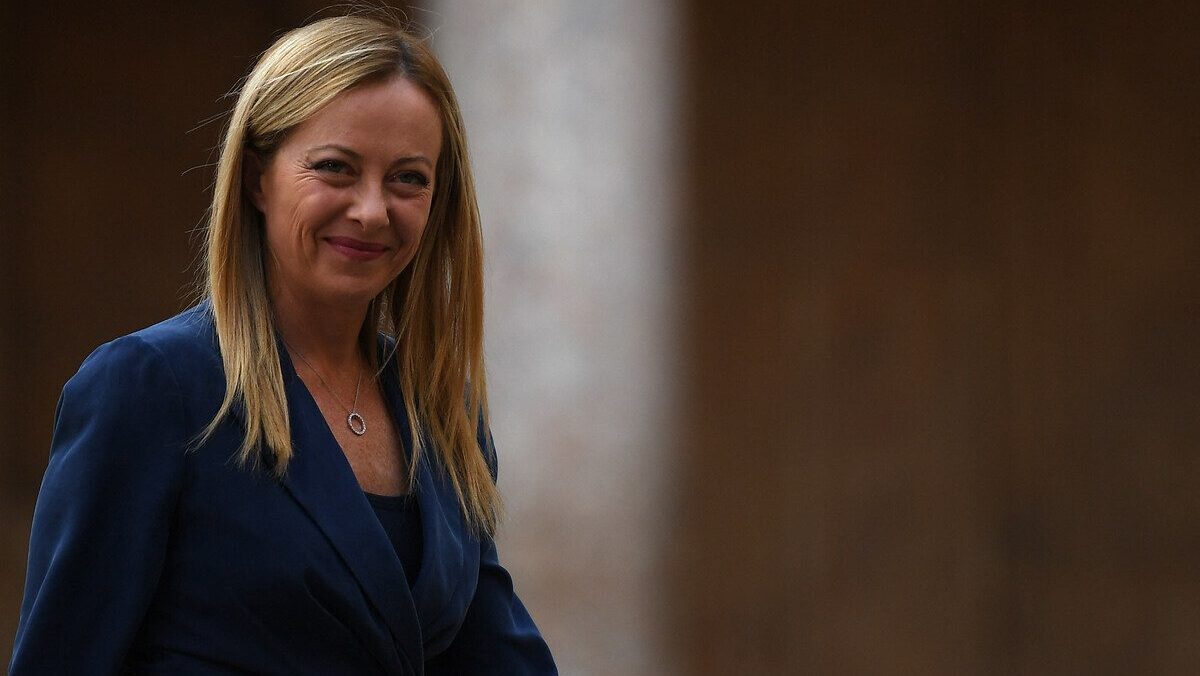
Italian Prime Minister Giorgia Meloni arrives at Carlos V Palace, at the Alhambra Palace in Granada, southern Spain on October 5th, 2023 prior to an official dinner at the European Political Community summit.
Photo: JORGE GUERRERO / AFP
An Italian draft law meant to bring about Italy’s “Third Republic” through constitutional reform, a main election promise of Prime Minister Giorgia Meloni, was presented by Meloni’s cabinet on Monday, October 30th.
As reported by Italian media, at a government summit that day, Meloni and her ministers agreed that this draft law, prepared by the Minister for Institutional Reforms, Maria Elisabetta Casellati (Forza Italia/EPP), would be presented to the Council of Ministers this Friday, which would then pass it on to Parliament.
“We have a historic responsibility: we must consolidate the democracy of change and finally lead Italy into the Third Republic with the constitutional reform that this government wants to implement,” said Meloni (Fratelli d’Italia/ECR).
Given the fact that, under its republican system post-WWII, Italy has witnessed almost 70 governments come and go, the chief aim of the bill is to ensure future governments’ stability.
In addition, it is meant to guarantee that the democratic wishes of the people are respected, and that, in the future, the prime minister will be directly elected (and not, as per tradition, appointed by the country’s president, who often brought in an unelected technocrat for the job).
It would also grant any winning coalition or party 55% of seats in parliament, which, by virtue of that majority, would make passing laws easier and thereby avoid the kind of hung parliaments seen in 2013 and 2018.
While the draft bill does not go into detail on what the role of the president would still entail, Casellati has made assurances that he would retain his other powers, including the one to appoint ministers, based on the prime minister’s suggestions.
Most parties, even some among the opposition, such as the small centrist Italia Viva (EDP), support the need for change with an eye to assuring the stability of the government.
Its leader, Matteo Renzi, who stepped down as premier after his own attempt at reform ran aground in 2016, said his party would be willing to back the initiative.
Ho scritto questo articolo che trovate sul Riformista di domani.
— Matteo Renzi (@matteorenzi) October 30, 2023
Siamo pronti a votare per l’elezione diretta ma no ai pasticci ideologici.https://t.co/Lbc5l2V2LK
However, the main opposition left-wing parties, the Partito Democratico (S&D), Movimento 5 Stelle (Non-Inscrits), and the Azione (Renew) party, are against the notion of a prime minister directly chosen by the electorate and promised they would fight its implementation.
As an alternative, they propose a German-style chancellorship, in which the prime minister is not directly elected and would be vested with the power to appoint ministers.
At any rate, for the bill to pass, it would need to secure a two-thirds majority in both houses of parliament—a prospect that, given the ever-fractious nature of Italian politics, has little chance of coming to pass.
As their plan B, Meloni and her coalition partners could, however, still play the card of holding a national referendum, which has every chance of sealing the deal.
